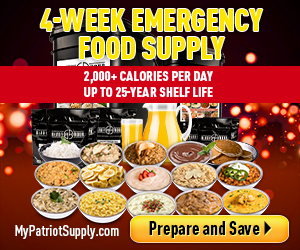Chickens Could Save Your Life

In this article we will cover the basics of chickens and raising them. So let's start with a home for the chickens. You will need to provide the chickens with a place to stay, protected from predators, safe from the elements and a place that they can nest.
Chicken coops aka Hen Houses come in many variations, sizes and shapes. Typically the bigger the better, within reason. I know of people with hen houses as big as 20' by 20' but they can be much smaller than that.
At night the predators will be on the hunt. Protection of your flock is paramount. For this reason, I prefer that a chicken coop be large and with solid walls. Locking your chickens away is important as you will not simply be able to replace them easily or at all. Solid walls without holes for mice, snakes, foxes, raccoon or coyotes to enter through is a must in a SHTF situation.
Since lumber, if available at all, would find better uses in your own house, I think Walls of clay or mix of log cabin construction would be a great alternative to traditional building materials. Also, with a structure built of clay it is easier to construct a building that is free of small openings at joints and seems.
A Hen House should contain a water supply for the chickens, a bowl or other container is a simple way to meet their water needs. Also, you will need a roost for the chickens. A roost basically the bedroom. Chickens like to get off of the ground and perch somewhere to sleep. So simply arranging a branch a foot or three off of the ground is perfect. The branch should be the proper diameter. Two to four inches in diameter is a good range.
When picking roost perch height and diameter consider the chickens you have. Smaller chickens equals higher perch allowed vs big chickens and smaller chickens mean you should tend towards smaller diameter perches. Don't worry to much about this. Just keep in mind that big chickens jumping down from higher perches could injure their feet and that chickens do not grasp the branch with their feet like most birds. Instead, they basically just balance on the perch like you or I. Two small of a branch could cause issues in extreme cold. Smaller branches will restrict the blood flow and frostbite is a potential issue.
You will also want nest boxes. Typically you want at least a couple or one for every three hens; whichever is greater.
Chickens need food every day and this is not an issue except in the coldest times of the year. Chickens will feed themselves by eating bugs and seeds and stuff all on their own. It is a good idea to supplement their food with additional items so that they remain unstressed and more productive.
And that is one of the great benefits of chickens and some other livestock options. You can often feed them things that you can't eat yourself and have them convert it into food that you can eat in the form of eggs or meat.
The preferred chicken is a hen. A hen can provide eggs and meat where as a rooster can only provide meat. However, a rooster is going to be essential because chicken don't live (or lay) forever and a rooster will be key to replacing or expanding your flock.
This has been a brief look at raising chickens More detailed articles on specific chicken topics are found in the links below.


